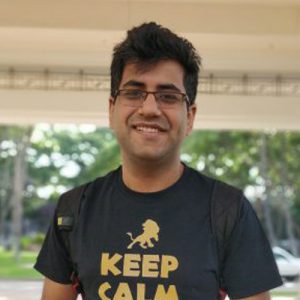
Registration is required
Register at: https://swanseauniversity.zoom.us/meeting/register/tJ0qf-mpqj8uGd0p4HGdAbdLwS65TcvDPvN9
SpeakerDr Mohit Kumar Jolly
(Indian Institute of Science, Bangalore, India)
Mohit is an Assistant Professor at Indian Institute of Science, Bangalore, where he leads the Cancer Systems Biology Laboratory. He obtained his Bachelors and Masters from IIT Kanpur, India and PhD from Rice University, all in Bioengineering. His research group is focused on understanding the emergent dynamics of regulatory networks underlying cancer metastasis and therapy resistance. His group integrates multi-scale mathematical models, single-cell multi-omics analysis, and close collaboration with experimental cancer biologists and clinical oncologists. He won the 2016 Young Scientist Seminar Series – a coveted award to communicate one’s research to diverse audience. He served as the co-Chair of Mathematical Oncology subgroup at the Society for Mathematical Biology from 2020-22, and has recently taken over as the Editor-in-Chief of NPJ Systems Biology & Applications. nature.
From: 26 Apr 2023, 3 p.m.To: 26 Apr 2023, 4 p.m.
Location: Join us at 2:45 for coffee tea and biscuits in the Robert Recorde Room (COFO 102) (Computational Foundry – Bay Campus) or Zoom (register here https://swanseauniversity.zoom.us/meeting/register/tJ0qf-mpqj8uGd0p4HGdAbdLwS65TcvDPvN9), Bay Campus
Metastasis – the spread of cancer cells from one organ to another – causes above 90% of all cancer-related deaths. It is a highly inefficient process, and a hallmark of cells enabling metastasis is phenotypic plasticity – the ability of a cell to reversibly switch among different phenotypes/cell-states in response to various stimuli. A canonical example of phenotypic plasticity is epithelial-mesenchymal plasticity (EMP), enabling bidirectional switching among epithelial (strong cell-cell adhesion, less migratory/invasive), mesenchymal (weaker cell-cell adhesion, more migratory/ invasive) and many hybrid epithelial/mesenchymal phenotypes. However, a mechanistic understanding of EMP from a dynamical systems modeling view remains elusive.
This talk will describe how mechanism-based mathematical models for EMP, in close integration with the latest experimental and clinical data, can enable our improved understanding of EMP at individual cell and population levels in terms of: a) Multistability (how many cell states exist ?), b) Reversibility (do cells come across a ‘tipping point’ beyond which they lose their ability to revert to their earlier cell-states?), and c) Collective behaviour (how does the rate of cell-state transition depend on its neighbours?) A quantitative and predictive understanding of such dynamical trajectories can help devise better therapeutic strategies ahead to control phenotypic plasticity, and eventually control metastatic spread.
Contact: Dr Geertje van Keulen & Dr Noemi Picco (Email: g.van.keulen@swansea.ac.uk) - Telephone: Noemi.Picco@swansea.ac.uk
Website: https://biomaths.swansea.ac.uk/mohit-kumar-jolly-bio-abstract/
Event created by: g.van.keulen
